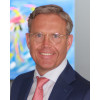It is a great honour for me to have been appointed Chairman of the BIR Plastics Committee and to present my first report for the Plastics Mirror in my new role. I am fully committed to serving the Plastics Committee to the best of my ability and look forward to fulfilling this position with passion and enthusiasm. Please feel free to share with me your thoughts and ideas. I hope that I will meet many of you at our upcoming World Recycling Convention in Singapore. As for the market situation, prices in Europe for regranulate have been relatively stable, changes in the plastics recycling industry are continuing, and the exporting of plastic waste is becoming more difficult owing to stricter regulations. And there are many new trends aimed at the circular economy.
European prices for PE, PP, PS and PET regranulate have remained relatively stable in recent times, but the expectation is for some types to embark on an upward trend in the coming months.
The Basel Convention meeting held in Switzerland from April 29 to May 10 was to feature a vote on a proposal from the Norwegian government for more transparency and responsibility in the worldwide trade in plastic waste. This proposal is viewed as a key mechanism in turning the tide on the plastic soup and plastic waste problem. The proposal has already obtained a great deal of support from China, Ghana, Switzerland and South Africa. Further support was anticipated from other countries as well as various environmental organisations.
Many Asian countries have joined China in stopping the importation of plastic waste. The export of plastic waste has therefore declined drastically and prices for export qualities have also decreased significantly.
Several new trends are being seen in Europe. Large European waste collectors such as Veolia, Suez and Remondis have taken over many recycling companies in order to process their own collected plastic waste. In addition, these companies are looking to collaborate with the plastic industry to bring new circular products into the market. European recycling companies are making substantial investments in washing and extrusion lines.
Another trend is that large companies - IKEA, for example - are participating in recycling companies in order to produce their own raw material needs in the future. Unilever and Procter & Gamble, among others, have been working on the sustainability of their packaging portfolios for some time now in order to ensure better recyclability.
Technological developments continue to be more innovative; pilot factories are currently being built at various European locations where plastic waste that cannot be processed mechanically is processed via chemical recycling. These various trends ensure that the recycling industry landscape will look completely different in the future. Plastic waste will be subject to more regional processing and will serve as raw material for products for the local market.
The plastic recycling market is currently in a transition phase whereby existing business models are being replaced by new circular models. We will have to accept that old business models are no longer sustainable and that there is a chance the shipping of large amounts of plastic waste will no longer occur in the future. This must not paralyse us as an industry; there are opportunities galore for us to become a part of a new circular economy. One of the key components for the development of the circular economy is collaboration; no single government or business is large enough to operate in this transition phase alone.

